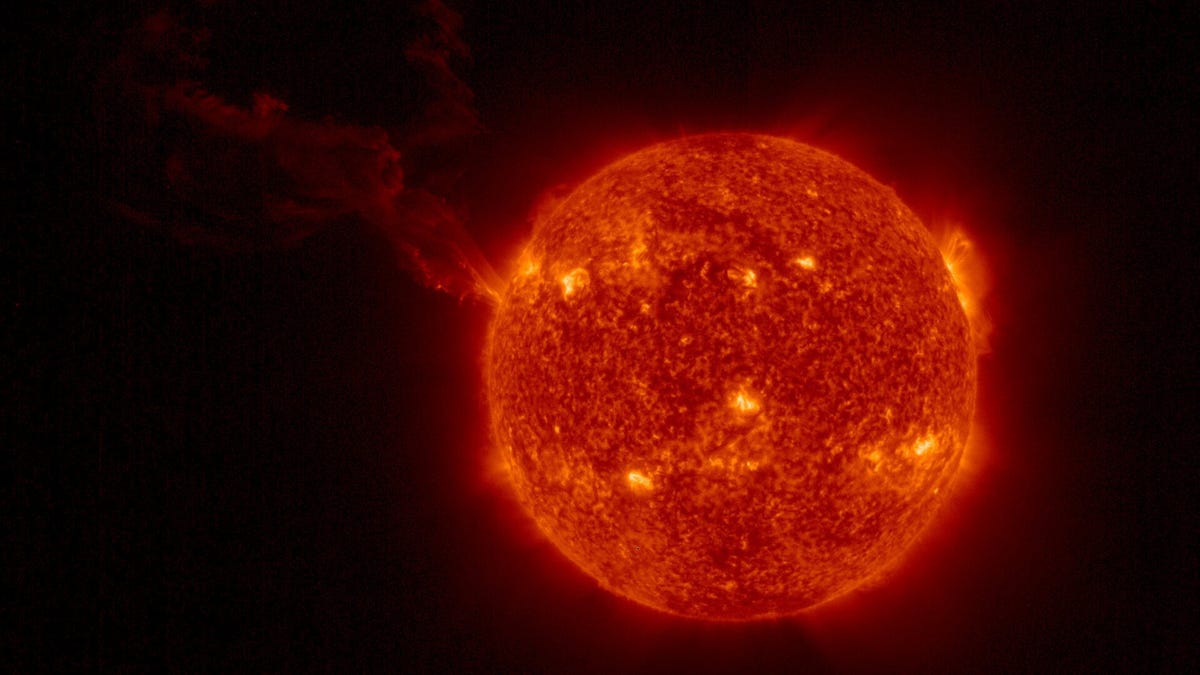See a Huge Solar Eruption Blast Out From the Sun in Stunning Space Views
NASA and ESA spacecraft got an eyeful of a bonkers solar outburst.
The sun is in some kind of mood. Last week, our host star unleashed a tremendous solar eruption that dazzled the eyes of sun-observing spacecraft.
The European Space Agency, which operates the Solar Orbiter mission along with NASA , released an image and video on Friday of the spacecraft's observations, calling it "the largest solar prominence eruption ever observed in a single image together with the full solar disc."
The video shows combined imagery from the Solar Orbiter and the Solar and Heliospheric Observatory, another sun-watching spacecraft. It highlights just how massive the eruption was.
"Solar prominences are large structures of tangled magnetic field lines that keep dense concentrations of solar plasma suspended above the sun's surface, sometimes taking the form of arching loops," ESA explained, saying this particular eruption extended for millions of kilometers into space.
The sun's outbursts can trigger gorgeous auroras on Earth, but they can also disrupt GPS and communications systems. The good news is this latest solar fuss seems to have originated from the other side of the sun and is moving away from our planet.
NASA and the National Oceanic and Atmospheric Administration's GOES-16 satellite is known for its views of Earth, but it also does some sun gazing. NOAA shared the satellite's view of the eruption, saying "Now that's a big bang" in a Thursday tweet.
Satellite instruments captured a dramatic solar eruption Tuesday, unlike any recent activity, on the sun’s surface. Now that’s a big bang: https://t.co/sFfHeyro6Z @NOAASatellites @CIRESnews #ScienceNews pic.twitter.com/OZvYO1ZZMY
— NOAA NCEI (@NOAANCEI) February 17, 2022
The satellite's GIF shows the blast stretching out so far it goes out of view.
The sun has been busy recently, triggering some lovely auroras last year. We have multiple spacecraft keeping an eye on our star's activities, which means we can get a heads-up when the sun spits solar material our way like an angry space-llama.
"And while this event did not send a blast of deadly particles towards Earth," said ESA, "it is an important reminder of the unpredictable nature of the sun and the importance of understanding and monitoring its behavior."


